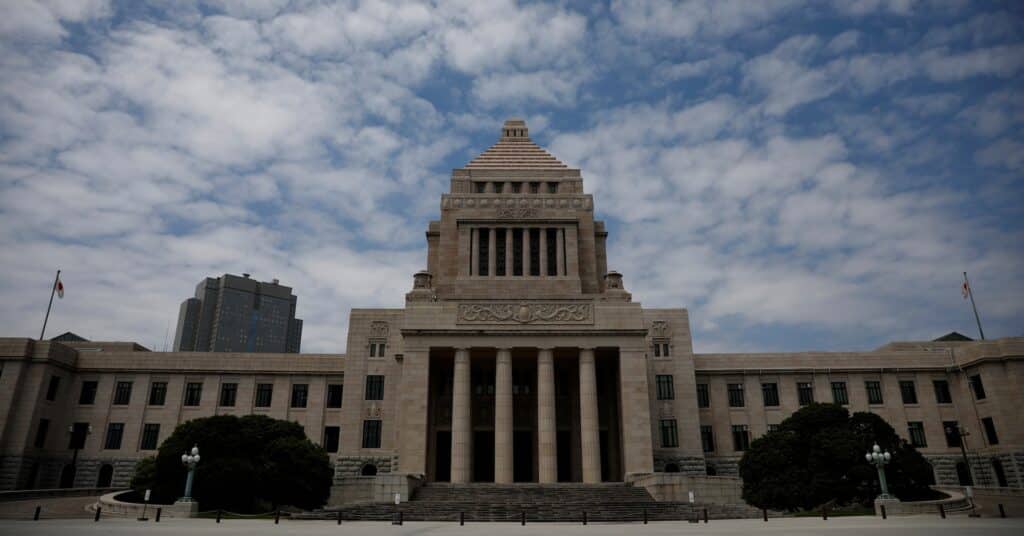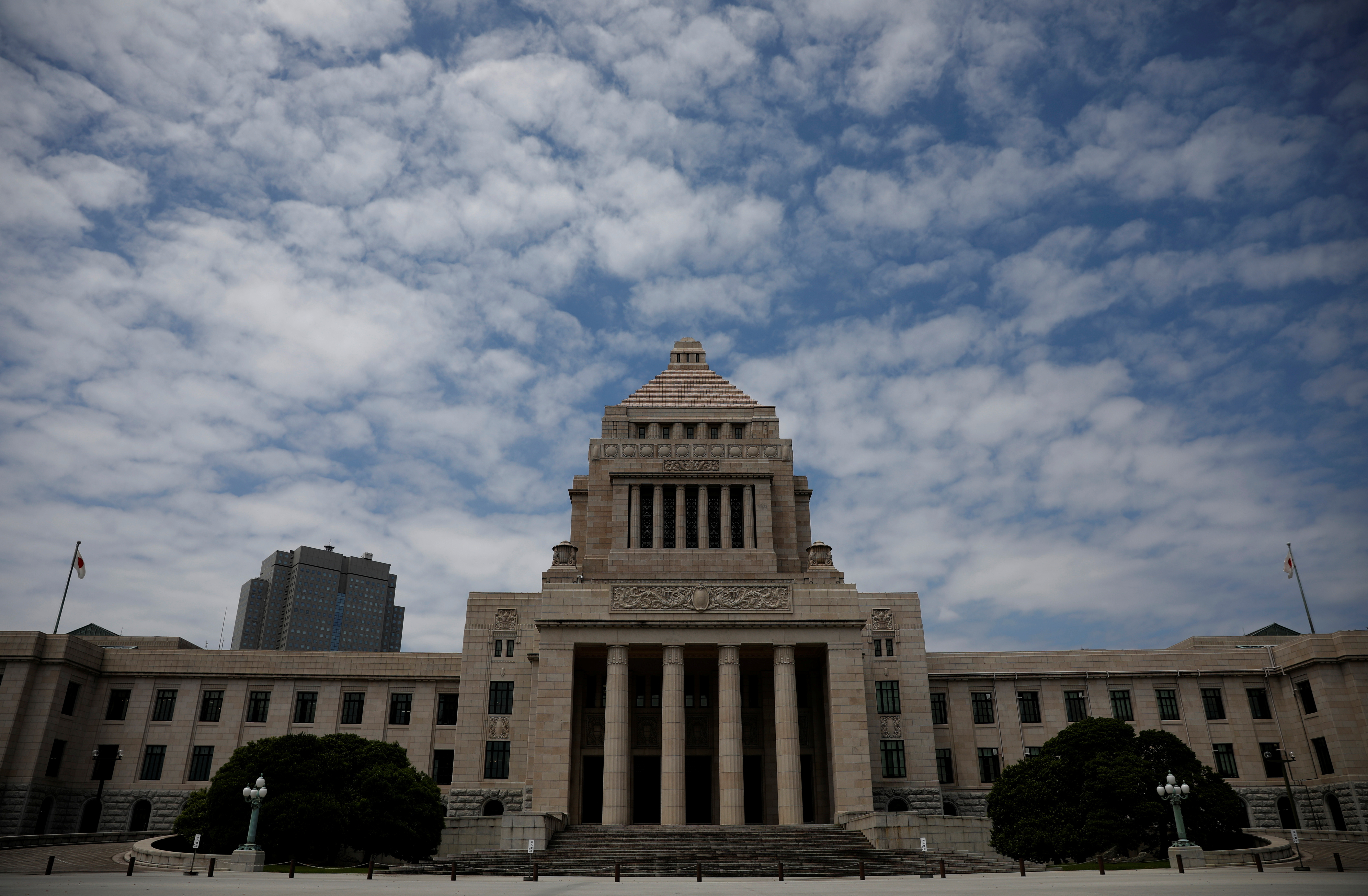Column: Yen shakes due to political instability, making unpopular interest rate hikes difficult – Toru Sasaki | Reuters


In the House of Representatives election held on October 27, the ruling coalition of the Liberal Democratic Party and Komeito won 215 seats, far short of the majority (233 seats). Although the ruling coalition had been aware of the possibility of a break in the majority, the extent of the split in the majority was so large that it could be said to have been a surprise to the market. Column by Toru Sasaki. Photo taken at the National Assembly Building in 2021 (2024 Reuters/Kim Kyung-Hoon)
[Tokyo, 30th]- In the House of Representatives election held on October 27th, the ruling coalition of Liberal Democratic Party and Komeito won 215 seats, far short of the majority (233 seats). Although the ruling coalition had been aware of the possibility of a break in the majority, the extent of the split in the majority was so large that it could be said to have been a surprise to the market. In response to the election results, yen selling progressed from the morning of the following day, the 28th, and the US dollar/yen exchange rate rose to the high 153 yen range, the first time since before the Bank of Japan raised interest rates on July 31st. The results of this election may lead to an additional depreciation of the yen in the long term.
With the fundamentals of the yen deteriorating historically, such as real interest rates stuck in negative territory and the balance of payments deteriorating, policies to strengthen the structure of the Japanese economy are necessary to increase the value of the yen. It is necessary to carry out these measures even if they are unpopular with the people. For this to happen, the government must be stable and strong. When a government is unstable and weak, it is inevitably forced to implement populist policies to gain popularity.
Of all the policies that need to be implemented for the sake of the Japanese economy, even if they are unpopular with the public, the most obvious one is the Bank of Japan’s interest rate hike. Of course, in theory, the Bank of Japan would say that it will carry out the monetary policy it has to carry out, regardless of the political situation. However, in reality, it would be difficult to aggressively raise interest rates when the government is so unstable. This is especially true after the yen appreciated and stock prices plummeted after raising interest rates in July.
It is not known how a coalition government will be formed in the future, but if the Democratic Party of Japan, Japan Restoration Party, and others were to form a coalition government, there is a possibility that fiscal spending would further expand. When many political parties form a coalition government, each party will try to highlight its own contributions by putting forward policies that are likely to be most popular with the people. There is a possibility that we will end up with a parade of disparate policies.
Naturally, this would further increase inflationary pressures and increase the need for the Bank of Japan to raise interest rates, but this would also leave the Bank of Japan solely responsible for policies that are unpopular with the public. If stock prices fall as a result of the Bank of Japan raising interest rates, the Bank of Japan will be criticized and there is a high possibility that it will be difficult to raise interest rates further. As a result, fiscal expansion and accommodative monetary policy will be maintained, and the negative range of Japan’s real interest rates will not shrink, but may even widen, further damaging the value of the yen.
Foreign policy is also a concern. A new president will soon be elected in the United States and will take office within three months. Considering various factors, maintaining a good relationship with the United States is now extremely important for economic security. For the new US president to value Japan as an important strategic partner, and for Japan to benefit from this, Japan’s administration must be solid and strong. An unstable and weak government will ultimately be unable to make any decisions and will not be treated seriously by other countries.
This is not only a geopolitical risk, but also affects Japan’s exchange rate policy, for example. To begin with, Japan’s foreign exchange reserves are limited and have already begun to decline, so there is a limit to how much it can intervene by selling the US dollar or buying the yen. Even so, if the need for intervention arises again in the near term, approval must be obtained based on good relations with the United States. As it is unclear who will be in charge of the administration in both the United States and Japan, there is a risk that communication between the Japanese and American authorities will not go well.
Including the period before the Liberal Democratic Party presidential election, Japan has not had a stable government for more than a month. It is possible that it will take another two weeks or more until the next prime minister and cabinet are decided, which would leave a gap of almost two months. For Japan, which faces various economic and security problems, there is a risk that if this situation continues, the problems will become even more serious.
Under these circumstances, the focus for the short-term yen exchange rate will be the October US employment statistics, which will be released on November 1st. Regarding the latest employment statistics, the rate of increase in non-agricultural employment is expected to be low due to the effects of hurricanes and strikes. Therefore, there is a high possibility that the market’s reaction to the latest employment statistics will be agnostic. In other words, if the results are weaker than expected, it will be explained by special factors such as the effects of hurricanes and strikes, and if the results are stronger than expected, it will be a surprise and likely to cause US interest rates and the US dollar to rise.
If the numbers turn out to be stronger than expected and the results of the U.S. presidential election to be held on November 5 are confused, and it seems likely that it will take some time to decide who will become president, the federal government on the 7th It may be difficult for the Open Market Committee (FOMC) to cut interest rates, and even if that happens, it is likely to put upward pressure on the US dollar/yen exchange rate.
What has maintained a strong correlation between the fall in the dollar/yen exchange rate since July and its subsequent rebound is the expectation of an interest rate cut by the end of next year, which is factored into the federal funds (FF) interest rate futures market. Expectations for a rate cut have already subsided significantly, but the market is still pricing in a 125 basis point (bp) rate cut by the Federal Reserve by the end of next year. If expectations for interest rate cuts decline by 25 basis points, the US dollar/yen exchange rate will rise by more than 4 yen. The possibility that the dollar-yen exchange rate will rise more than expected in response to unexpectedly strong US employment statistics is not that low.
Edit: Erika Mune
(This column was posted on the Reuters Foreign Exchange Forum. It is written based on the author’s personal views)
*Mr. Toru Sasaki is the chief strategist of Fukuoka Financial Group. After graduating from Sophia University in 1992, he joined the Bank of Japan. After working in the Research and Statistics Department, the International Bureau’s Foreign Exchange Division, and the New York Office, he joined JPMorgan Chase Bank in April 2003. Appointed managing director in 2010, and served as head of the bank’s market research division from 2015 to November 2023. Current position since December 2013. His books include “Does Inflation Really Increase Our Income?” and “Weak Japan’s Strong Yen.”
*The content such as news, trading prices, data and other information in this document is provided by the columnist for your personal use only and is not provided for commercial purposes. there is no. The content of this document is not intended to solicit or induce any investment activity, and it is not appropriate to use this content for the purpose of making decisions regarding trading or buying or selling. This content does not provide any investment, tax, legal, etc. advice that constitutes investment advice, nor does it make any recommendations regarding specific financial stocks, financial investments, or financial products. Use of this document is not intended to replace investment advice from a qualified investment professional. Although Reuters uses reasonable efforts to ensure the reliability of content, any views or opinions provided by columnists are their own and not those of Reuters.
Our code of conduct:Thomson Reuters “Principles of Trust”
